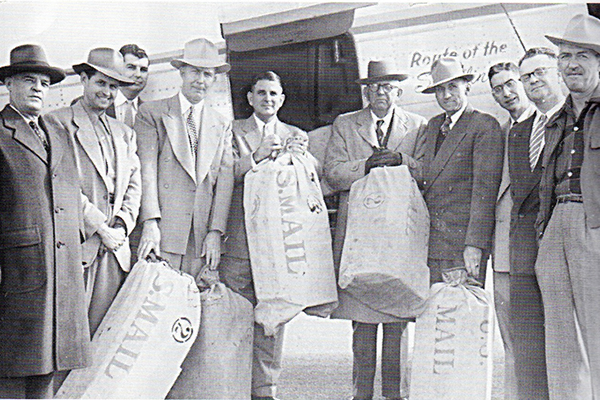IT'S JUNE. It’s south Arkansas. The humidity is so high even the horseflies have prickly heat. I am sitting on a scorching metal bench outside Burge’s diner in Lewisville waiting on a catfish po’boy. A black Lincoln hearse rolls up. The doors swing open, pumping out chilled air. Two women from the local funeral home approach the counter. They order Tiger’s Blood snow cones, to go.
I’m headed to Magnolia, another 20 miles east. My mom’s family settled there in the early 1800s. Beginning in the 1920s, my great-grandfather scooped up as much land as he could. He bought and sold timber, then mineral rights. The Magnolia Oil Field was discovered in 1938. For a while it was the largest producing field (by volume) in the United States. When oil decreased, companies shifted to bromine extraction. All sucked up from the Smackover Formation, a Jurassic-era limestone aquifer that stretches from Texas to Florida full of oil, natural gas, and mineral-heavy water. Albemarle, the largest producer of bromine in the world, is headquartered in Magnolia — a town of 10,000 with a 25 percent poverty rate.
My great-grandfather was what novelist Wallace Stegner called a “boomer” — motivated by “the deal,” a desire for property, upwardly mobile, ambitious, with a craving to get as much as he could take. He lived for the boom. He was a canny and conniving businessman. To his credit, he was not a boomer in absentia. He lived where he extracted. And what he set in place 100 years ago still modestly provides for his descendants today.
My mom moved away from her hometown. I grew up in California. We spent summers in Magnolia. When I was 11, we lived here with my grandmother for a year. Culturally, I feel as alien to south Arkansas as it’s possible to be. And yet. We have a history together.
Recently, I drove out with a local forester to study the timber on land acquired by my great-grandfather. He pointed out where pine beetle devastated several acres. Where they needed a controlled burn or an access road. He taught me how to measure board feet from a living tree.
But now, he told me, a new “boom” is forming. Ten thousand feet below the surface, the Smackover Formation’s mineral-heavywater is full of lithium — a critical component in batteries needed for the transition beyond fossil fuels. I have already seen the shape of the boom. A traditionally dry county, there has been heated debate over making Magnolia’s courthouse square an “entertainment district,” allowing the sale of alcohol. Open blackland prairie farm lots now sport advertisements for RV parks to accommodate the influx of temporary labor. ExxonMobil opened a community liaison office. Two new banks moved in.
The opposite of a boomer, Stegner said, is a “sticker” — someone motivated by affection for a place, a desire to do right by a community and the land, a willingness to integrate a place into one’s life stories. I aspire to be a sticker, but can I be one in absentia?
In Leviticus 25, God says: “The land shall not be sold forever: for the land is Mine; you are strangers and sojourners with me. Throughout the land that you hold, you must provide for the redemption of the land” (verses 23-24). What we are given is not ownership, but tenancy. How will I become a good tenant? How will I defend those always left out of any boom? How will I invest in the “redemption of the land” and her people?
My catfish po’boy drips with deliciousness. I ponder. Nod to the ladies in the hearse. Then I order Burge’s Gallon Guzzler of homemade lemonade, to go.

Got something to say about what you're reading? We value your feedback!






